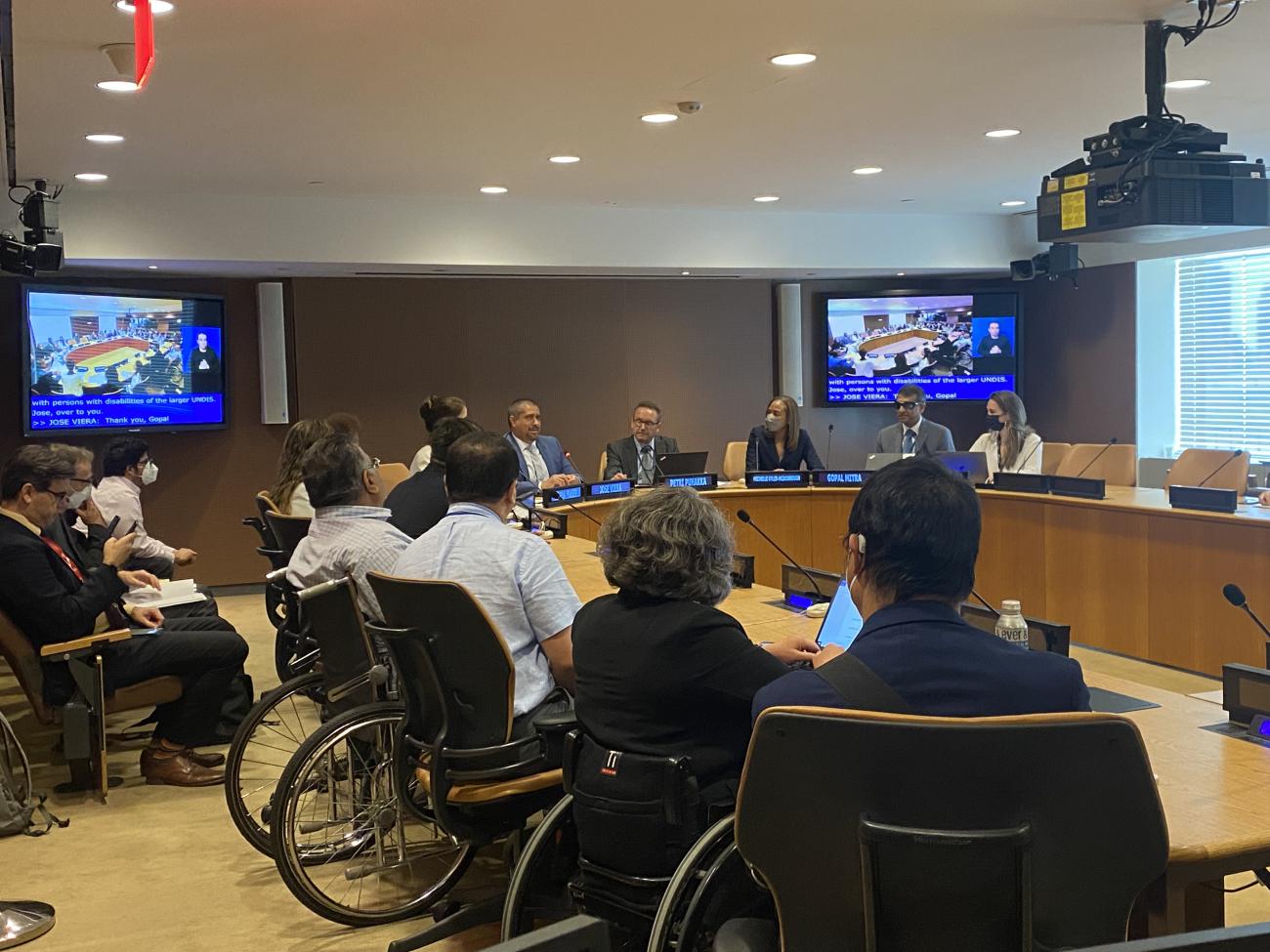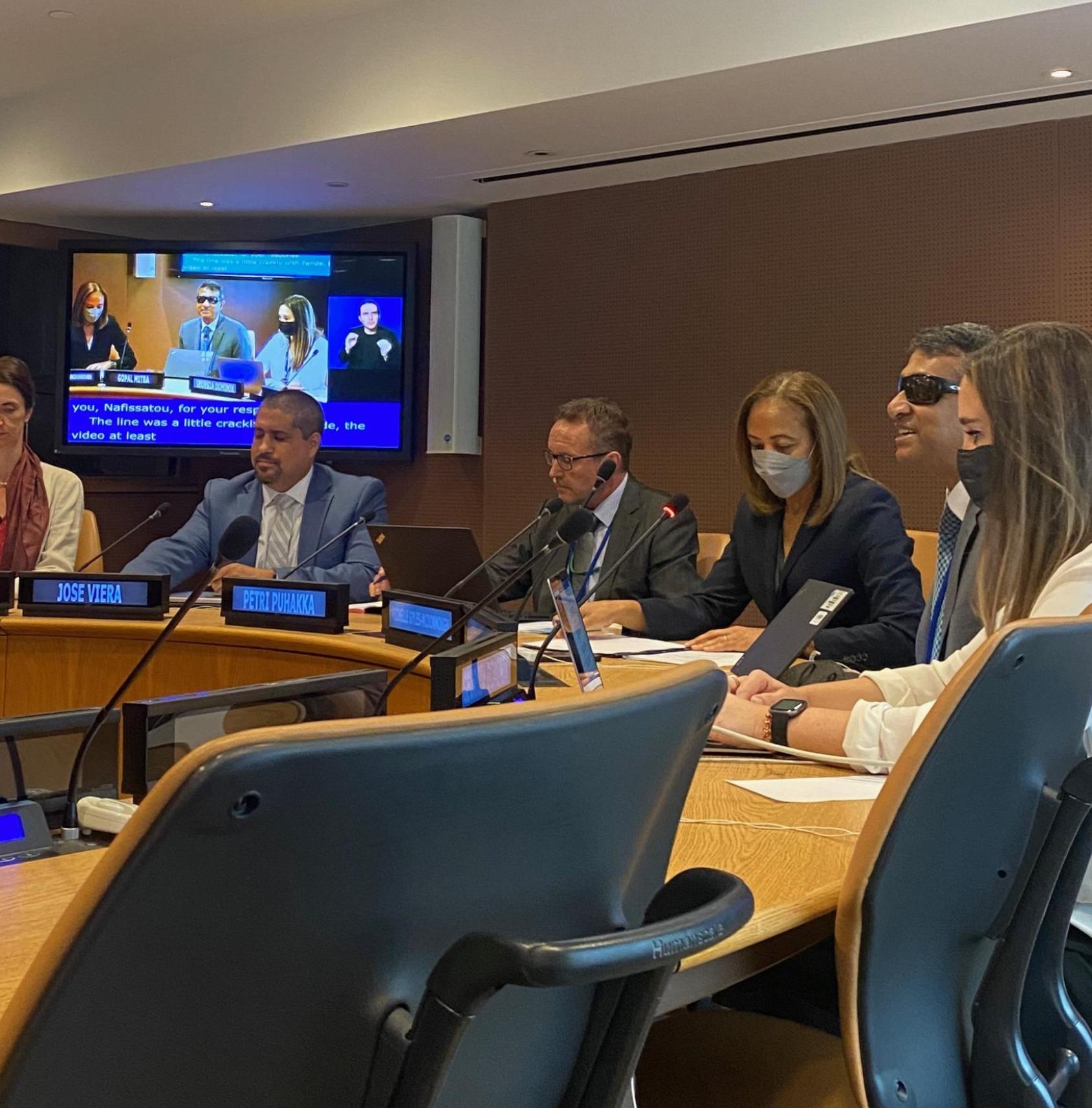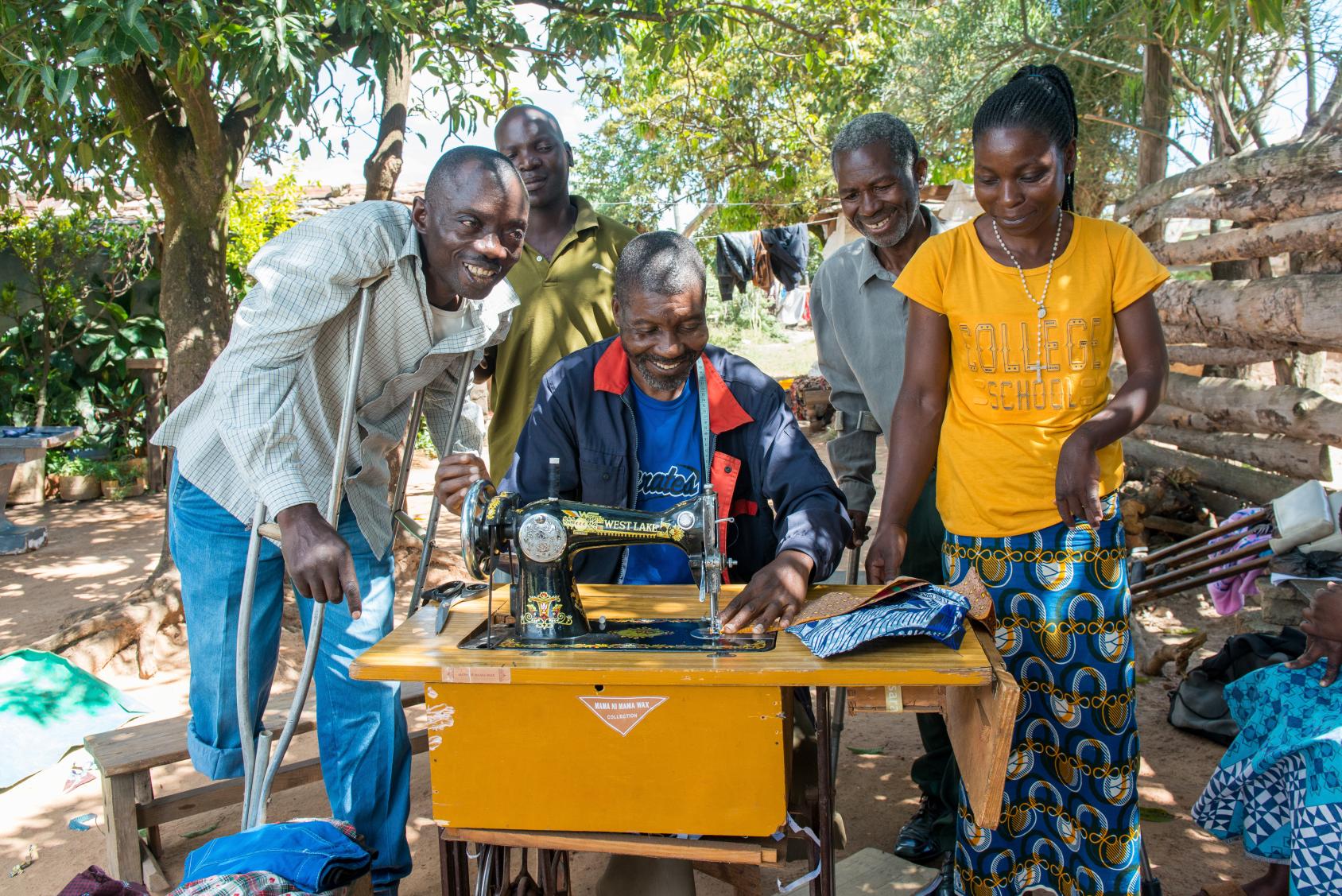UN and partners renew commitment to Disability Inclusion

This piece is about a side-event during the Conference of States Parties to the Convention on the Rights of Persons with Disabilities (CRPD). The event was organized by the Executive Office of the Secretary-General, and co-sponsored by the Permanent Mission of Finland to the UN and the UN Development Coordination Office (DCO).
Leaders from different UN agencies, Member States, and Organizations of Persons with Disabilities, came together on Tuesday 14 June in New York to discuss progress in the implementation of the UN Disability Inclusion Strategy (UNDIS).
The UN Disability Inclusion Strategy is a system-wide framework designed to build transformative and lasting change in disability inclusion through UN programmes and operations from a global to country level.
The side-event featured a broad range of voices and perspectives on the issue of disability inclusion.
Michelle Gyles-McDonnough, Director of the Sustainable Development Unit in the Executive Office of the Secretary-General, underscored the importance of implementing the UNDIS:
"Given that persons with disabilities are the world’s largest minority, ensuring disability inclusion in our programs and operations from headquarters to country level is not only a matter of rights, it is absolutely critical to the achievement of the Sustainable Development Goals and fulfillment of the promise of the 2030 Agenda – to leave no one behind."
In keeping with the CRPD, the strategy emphasizes the urgent need to ensure the full and equal participation of persons with disabilities in their representative organizations and across all partnerships. Jose Viera, Advocacy Director for the International Disability Alliance, explained the centrality of this point:
“We are no longer part of that little validation piece of policies and programmes, but we are active and key partners to the design, implementation and monitoring pieces of programs and policies. I think that framing has been possible because of the UNDIS.”

Helena Fraser, Chief of the Policy and Programme Branch in the UN Development Coordination Office (DCO), echoed this sentiment, describing the UN Disability Inclusion Strategy as a “clear roadmap for UN entities and UNCTs to deliver transformative change.”
Ms. Fraser outlined how DCO supports this effort through its Resident Coordinator System, including the 132 UN country teams (UNCTs) on the ground who help coordinate the work of UN agencies to address disability inclusion more comprehensively across their programmes and operations.

DCO has established a network of focal points across the Resident Coordinator System to strengthen capacity to support disability inclusion. In addition, the Department has also signed an Memorandum of Understanding with the International Disability Alliance to ensure that all inclusion efforts are designed and implemented in coordination with Organizations of Persons with Disabilities. DCO is also working closely with the EOSG to ensure that UNCTs have access to the support needed to implement the UNDIS, and to monitor progress through the UNCT scorecard.
Many counties are already effectively implementing the UNDIS to help catalyze change at a country-level. Peride Blind, Head of the Resident Coordinator’s Office in Guatemala, described the integrated and intersectional approach the UN country team has taken to implement the UNDIS, emphasizing the value of having several staff with disabilities as part of the team.
Ms. Blind also outlined the progress the UNCT has made in building close partnerships with Organizations of Persons with Disabilities and ensuring they inform all aspects of their work. She described the overall approach of the UNDIS as “a simple and steadfast effort to underline disability inclusion consistently and strategically.”
The UNDIS requires both mainstream and targeted efforts to achieve disability inclusion. Andrew Nye of the Department of Operational Support explained the different steps required to make sure UN premises is accessible to all staff. This included “ensuring that the procurement process itself is inclusive of vendors with disabilities, and ensuring that the goods and services we procure are accessible.”
Many of the panelists described internal efforts to promote disability inclusion in their own agencies and departments. Dr. Nafissatou Diop of the UN Population Fund (UNFPA), presented their internal disability inclusion strategy “We Matter, We Belong, We Decide” and discussed progress in integrating disability inclusion into UNFPA’s strategic planning and programming.
Consistent throughout all discussions at the side-event was the recognition that the meaningful participation of persons with disabilities is central to all aspects of the UN’s work.
Reflecting on the future of disability inclusion, Ms. Gyles-McDonnough, from the Executive Office of the Secretary-General, concluded at the end of event: “UNDIS is not just a UN strategy, it is a strategy for all.”
This story was written by the Disability Inclusion Strategy Team in the UN Development Coordination Office. Learn more about the UN Disability Inclusion Strategy here.













